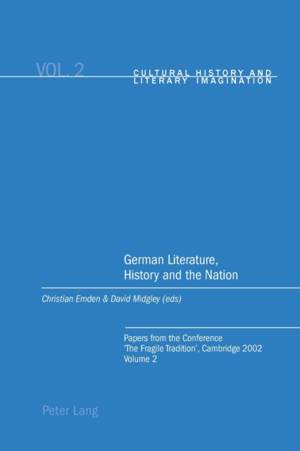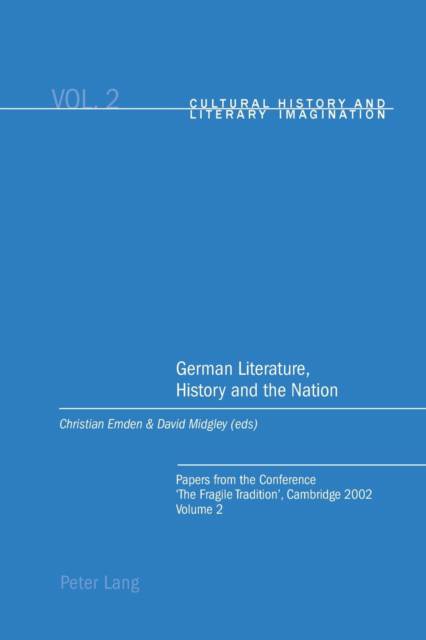
- Afhalen na 1 uur in een winkel met voorraad
- Gratis thuislevering in België vanaf € 30
- Ruim aanbod met 7 miljoen producten
- Afhalen na 1 uur in een winkel met voorraad
- Gratis thuislevering in België vanaf € 30
- Ruim aanbod met 7 miljoen producten
Zoeken
German Literature, History and the Nation
€ 114,45
+ 228 punten
Omschrijving
This is the second of three volumes based on papers given at the 'Fragile Tradition' conference in Cambridge, 2002. Together they provide a conspectus of current research on the cultural, historical and literary imagination of the German-speaking world across the whole of the modern period.
This volume highlights the connections between cultural identity and the sense of nationhood which are to be found in literary writing, the history of ideas, and the interaction between European cultures from the late Middle Ages to the present day. It focuses particularly on the way myths of cultural identity are passed on and transformed historically; on the fashioning of various models of modern German identity with reference to the cultures of Greece, France, England and Renaissance Italy; on the reflection of 19th-century nationalism in literary writing and ideas about language; and on the ways in which cultural values have asserted themselves in relation to moments of catastrophe and abrupt political change in the 1920s, the 1940s, and the 1990s.
This volume highlights the connections between cultural identity and the sense of nationhood which are to be found in literary writing, the history of ideas, and the interaction between European cultures from the late Middle Ages to the present day. It focuses particularly on the way myths of cultural identity are passed on and transformed historically; on the fashioning of various models of modern German identity with reference to the cultures of Greece, France, England and Renaissance Italy; on the reflection of 19th-century nationalism in literary writing and ideas about language; and on the ways in which cultural values have asserted themselves in relation to moments of catastrophe and abrupt political change in the 1920s, the 1940s, and the 1990s.
Specificaties
Betrokkenen
- Uitgeverij:
Inhoud
- Aantal bladzijden:
- 398
- Taal:
- Duits
- Reeks:
- Reeksnummer:
- nr. 2
Eigenschappen
- Productcode (EAN):
- 9783039101696
- Verschijningsdatum:
- 16/07/2004
- Uitvoering:
- Paperback
- Formaat:
- Trade paperback (VS)
- Afmetingen:
- 152 mm x 229 mm
- Gewicht:
- 530 g

Alleen bij Standaard Boekhandel
+ 228 punten op je klantenkaart van Standaard Boekhandel
Beoordelingen
We publiceren alleen reviews die voldoen aan de voorwaarden voor reviews. Bekijk onze voorwaarden voor reviews.










